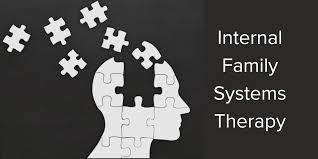In today’s fast-paced world, where competition is fierce ifs therapy and challenges are constant, individuals often seek ways to enhance their personal and professional lives. One increasingly popular method that has proven to be highly effective is coaching. Coaching has emerged as a powerful tool for unlocking human potential, fostering growth, and achieving success in various spheres of life.
Coaching is not a new concept; its roots can be traced back to ancient civilizations where mentors guided individuals to reach their full potential. However, in recent years, coaching has evolved into a structured and professional practice aimed at empowering individuals to set and achieve their goals.
At its core, coaching is a collaborative process between a coach and a client, focused on facilitating self-discovery, goal-setting, and action planning. Unlike mentoring or consulting, where the focus is on providing advice or expertise, coaching is about helping individuals tap into their own inner resources to find solutions and make decisions that align with their values and aspirations.
One of the key principles of coaching is that the client is inherently creative, resourceful, and whole. This means that the client possesses the answers to their own challenges; they just need the right support and guidance to uncover them. Through active listening, powerful questioning, and providing constructive feedback, coaches create a safe and supportive environment for clients to explore their thoughts, feelings, and beliefs, thereby gaining clarity and insight into their goals and priorities.
Coaching is not limited to any particular domain; it can be applied across various areas of life, including career, relationships, health, and personal development. In the corporate world, executive coaching has become increasingly prevalent as organizations recognize the value of investing in their leaders’ development. Executive coaches work with senior executives to enhance their leadership skills, improve decision-making, and drive organizational performance.
In addition to executive coaching, there are numerous other specialties within the coaching profession, such as life coaching, career coaching, wellness coaching, and performance coaching, each tailored to address specific needs and objectives.
One of the greatest benefits of coaching is its ability to catalyze positive change and transformation in individuals’ lives. By helping clients gain clarity on their goals, identify limiting beliefs, and develop actionable strategies, coaching empowers them to overcome obstacles, maximize their strengths, and unlock their full potential.
Research has consistently shown that coaching yields tangible results, including increased self-awareness, enhanced problem-solving skills, improved communication, greater resilience, and higher levels of satisfaction and fulfillment. Moreover, organizations that invest in coaching report higher employee engagement, productivity, and retention rates, ultimately translating into improved business outcomes.
In conclusion, coaching is a powerful catalyst for personal and professional growth, offering individuals the support, guidance, and accountability they need to achieve their goals and aspirations. Whether it’s navigating a career transition, overcoming challenges, or unleashing untapped potential, coaching provides a transformative journey towards success and fulfillment. As the demand for coaching continues to rise, it is evident that its impact will continue to shape individuals and organizations for years to come.



